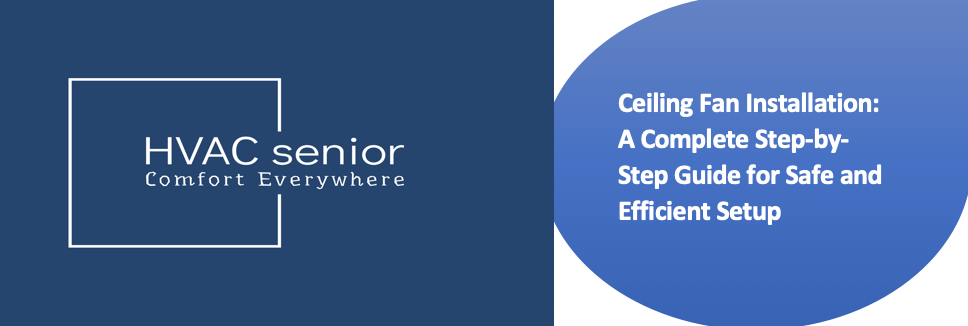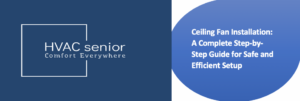Air Conditioner Squeaking [Solved].
It’s common to hear your HVAC system turn on and off. You might even hear some strange sounds come out of it, but one thing you shouldn’t hear is a squeaking noise. If your air conditioner is squeaking, something is going wrong with the unit.
You need to act fast whenever something goes wrong with your air conditioner. Waiting to have it fixed can cause further damage. If you notice a squeaking, shut it off and call a technician to check out your HVAC system.
At a glance: Air conditioner squeaking can be caused by A Faulty Compressor,A Damaged Condenser Fan,Worn Isolation Feet or High Humidity Levels.
Related Post>>>>Air Conditioner Hissing.
Why Air Conditioner Is Squeaking.
There are some common reasons why your air conditioner is squeaking. There could be a reason not listed here that is causing the squeak. This is why it’s imperative to have a professional check out your air conditioner and repair it.
1.A Faulty Compressor.
The compressor in an air conditioner plays a crucial role in the cooling process by delivering the refrigerant that cools the air circulated throughout your home.
When this vital component malfunctions, it can manifest as squeaking noises, often signaling underlying issues with either the compressor clutch or compressor pulley.
Compressor Clutch and Compressor Pulley.
a. Compressor Clutch:
Symptoms: If your air conditioner emits squeaking noises upon startup and fails to produce cold air, a faulty compressor clutch could be the culprit. The compressor clutch engages and disengages the compressor, allowing it to cycle on and off. If the clutch is malfunctioning, it may not properly engage, leading to both the squeaking sound and a lack of cooling.
b. Compressor Pulley:
Symptoms: Squeaking noises persisting throughout the entire air conditioning cycle are often linked to a problematic compressor pulley. Unlike the clutch, the pulley is in constant motion when the air conditioner is operational. Continuous squeaking may indicate issues with the pulley’s bearings or alignment, affecting its smooth rotation.
Troubleshooting a Faulty Compressor.
While identifying a faulty compressor is relatively straightforward through the symptoms mentioned, attempting to repair it independently is strongly discouraged. The compressor is a complex and expensive component, and mishandling it can lead to further damage or even personal injury.
Effective Troubleshooting Method
When faced with a squeaking air conditioner suspected to be caused by a faulty compressor, it is advisable to take the following steps:
- Turn Off the System: As a safety precaution, turn off the air conditioning system to prevent any further damage or potential hazards.
- Seek Professional Assistance: Contact a licensed HVAC technician to inspect and diagnose the issue. Professional technicians have the expertise and specialized tools required to assess the compressor’s condition accurately.
- Avoid DIY Repairs: Resist the temptation to dismantle or repair the compressor yourself, as it involves intricate components and refrigerant handling, which requires specialized knowledge and equipment.
2.A Damaged Condenser Fan.
The condenser fan is a vital component in an air conditioning unit, responsible for dissipating heat from the refrigerant and maintaining optimal system performance. When this fan malfunctions, it can manifest as irritating squeaking noises, which may stem from various components within the air conditioner unit.
Also read: 120v to 12v converter for air conditioner
Components at Fault: Fan Belt, Fan Motor, and the Fan Itself.
a. Fan Belt (Older Units):
Symptoms: In older air conditioning units, a worn-out fan belt can be a common source of squeaking noises. Over time, these belts can become brittle and lose elasticity, resulting in noise during operation.
b. Fan Motor (Modern Units):
Symptoms: Modern air conditioners use direct drive motors, eliminating the need for fan belts. However, if your AC is relatively new and you’re experiencing squeaking, the issue may lie with the fan motor. Bearings within the motor could be wearing out or experiencing lubrication issues.
c. Fan Itself:
Symptoms: The fan blades or assembly can also contribute to squeaking sounds. Environmental factors, debris lodged in the unit, or accumulated dirt on the fan blades may all lead to unwanted noise during operation.
Troubleshooting a Damaged Condenser Fan: A Step-by-Step Guide.
To effectively troubleshoot and address squeaking noises emanating from a damaged condenser fan, consider the following steps:
- Power Off the Unit: Ensure the air conditioner is turned off to prevent any accidents during the inspection and troubleshooting process.
- Inspect Fan Blades and Housing:
- Remove Debris: Check for any debris, such as leaves, twigs, or foreign objects, lodged in the fan housing. Remove these carefully to prevent damage to the blades.
- Clean the Fan: If the fan blades are dirty, clean them gently using a soft brush or compressed air. Accumulated dirt can contribute to squeaking noises.
- Check Fan Belt (Older Units):
- Inspect for Wear: If your air conditioner is an older model with a fan belt, visually inspect it for signs of wear, cracks, or brittleness. Replace the belt if necessary.
- Examine the Fan Motor (Modern Units):
- Lubrication: If the squeaking is attributed to the fan motor, consider lubricating the bearings as per the manufacturer’s guidelines. If the issue persists, professional intervention may be required.
- Professional Assistance:
If the troubleshooting steps do not resolve the issue or if you are unsure about certain components, it is recommended to seek professional assistance. HVAC technicians have the expertise and tools to diagnose and address complex problems with the condenser fan.
Also read: No Condensation from AC.
3.Worn Isolation Feet.
In larger air conditioning units, the presence of worn isolation feet can contribute to a variety of unwelcome noises, including humming, buzzing, or squeaking. Isolation feet, typically made of rubber, serve the crucial purpose of stabilizing the unit, minimizing vibrations, and reducing noise.
When these feet become worn down due to age and extended use, it can lead to a range of operational issues and noises within the air conditioner.
Understanding the Impact of Worn Isolation Feet: A Multi-Noise Dilemma.
a. Noise Manifestations:
- Humming: Worn isolation feet can result in a humming noise as the unit vibrates against the surface it sits on, creating a resonating sound.
- Buzzing: Vibrations may also lead to a buzzing sound, indicating the physical impact between the unit and its base.
- Squeaking: The rubbing and friction caused by worn isolation feet can produce squeaking noises, adding another layer to the auditory disturbance.
b. Compounded Issues:
- Vibrations: Worn isolation feet not only contribute to noise but can also lead to increased vibrations. These vibrations can, in turn, affect internal components such as the compressor, potentially causing further damage.
- Accelerated Wear: If one isolation pad wears down, the likelihood of the others degrading faster increases. This accelerated wear can exacerbate the noise issue and compound the strain on the unit.
Troubleshooting Worn Isolation Feet: Comprehensive Steps.
To effectively troubleshoot and address air conditioner squeaking caused by worn isolation feet, follow these comprehensive steps:
- Power Off the Unit: Before any inspection or maintenance, ensure the air conditioner is turned off to guarantee safety during the process.
- Visual Inspection:
- Check Isolation Feet: Inspect the rubber isolation feet for signs of wear, cracks, or degradation. Pay attention to any irregularities in their shape or size.
- Examine Unit Stability: Ensure the unit is stable and level on the surface. If the unit is tilting or wobbling, it may indicate issues with the isolation feet.
- Replace Worn Isolation Feet:
- Purchase Compatible Replacements: Identify the specific type of isolation feet used in your unit and purchase suitable replacements. Ensure they match the size and specifications of the original feet.
- Installation: Replace the worn isolation feet with new ones by following the manufacturer’s guidelines. This simple step can significantly reduce noise and prevent further complications.
- Monitor Vibrations:
- Inspect Internal Components: After replacing the isolation feet, monitor the unit for any signs of abnormal vibrations. Check internal components, especially the compressor, for potential issues caused by previous vibrations.
- Professional Assessment:If the noise persists or if you have concerns about internal damage, seek professional HVAC assistance. A technician can conduct a thorough inspection and address any underlying issues.
Also read>>>AC Not Blowing Cold Air But Running.
4.High Humidity Levels.
Humidity, especially in high levels, can pose challenges to your air conditioning unit’s efficiency, potentially leading to increased operational strain and undesirable noises, including squeaking. Understanding the implications of high humidity and adopting effective troubleshooting methods is crucial for maintaining the optimal performance of your air conditioner.
The Impact of High Humidity on Air Conditioner Performance:
a. Increased Workload:
Cause: High humidity levels make it harder for the air conditioner to cool the air effectively. The unit has to work intensively to remove both heat and moisture from the air, placing an additional burden on its components.
b. Potential for Component Breakdown:
Cause: Prolonged exposure to high humidity, especially in areas like Jacksonville, FL, can lead to persistent challenges for the air conditioner. The difficulty of cooling and dehumidifying the air may cause components inside the unit to break down over time.
Troubleshooting High Humidity-Related Squeaking: Comprehensive Steps
To effectively troubleshoot air conditioner squeaking caused by high humidity, follow these comprehensive steps:
- Monitor Humidity Levels:
- Use Hygrometer: Invest in a hygrometer to measure and monitor the humidity levels inside your home. This tool provides insights into the extent of the humidity-related challenges your air conditioner may be facing.
- Act Promptly with a Dehumidifier:
- Install a Dehumidifier: If you identify high humidity as a significant issue, consider installing a dehumidifier. A dehumidifier works alongside the air conditioner to remove excess moisture, reducing the workload on the AC unit.
- Whole-House Dehumidifier: In areas with consistently high humidity, like Jacksonville, FL, a whole-house dehumidifier may be more effective than a room-specific unit. Consult with your HVAC technician to determine the most suitable option for your home.
Frequently Asked Questions (FAQs).
Why is my air conditioner making squeaking noises?
Squeaking noises in your air conditioner can stem from various causes. Common culprits include a faulty compressor (look for issues with the compressor clutch or pulley), a damaged condenser fan (check the fan blades, motor, or belt), worn isolation feet (inspect rubber pads for wear and tear), and, in some cases, high humidity levels (consider using a dehumidifier to alleviate strain on the unit).
Can I troubleshoot the squeaking issue on my own, or should I seek professional help?
While some troubleshooting steps can be taken by homeowners, attempting to repair complex components like the compressor or internal parts without proper knowledge is discouraged.
If you identify issues with the compressor, condenser fan, or isolation feet, it is recommended to consult with a licensed HVAC technician for accurate diagnosis and safe resolution.
How can I address high humidity affecting my air conditioner?
To address high humidity, monitor humidity levels using a hygrometer. Act promptly by installing a dehumidifier to work alongside your air conditioner.
Consider a whole-house dehumidifier for areas with consistent high humidity, and ensure regular maintenance, such as cleaning air filters and inspecting ductwork, to optimize the performance of your air conditioning unit.
Is it normal for smaller units to experience issues with isolation feet?
Smaller air conditioning units typically do not require isolation feet. Issues with isolation feet, such as wear and tear, are more common in larger units. If you notice stability problems or noise related to isolation feet in a larger unit, prompt replacement of worn pads is crucial. Always consult with an HVAC technician for proper guidance based on your specific unit and circumstances.
Also read>>>Air Conditioner Not Working After Power Outage.
Conclusion.
Addressing air conditioner squeaking requires a systematic approach. From diagnosing compressor and condenser fan issues to recognizing the impact of worn isolation feet and high humidity, homeowners should prioritise regular maintenance and professional consultation. Proactive measures not only ensure a quieter environment but also contribute to the longevity of the cooling system.









